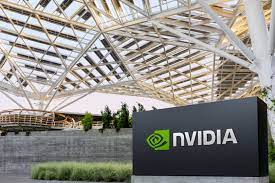$5 Trillion & Counting: NVIDIA Beats Nations
Derek J. Espineli
Staff Writer
A market capitalization of five trillion, NVIDIA has achieved that once seemed unimaginable. The most valuable company in the world. Once known for powering your computer, NVIDIA has transformed itself into an artificial intelligence revolution, showing how untouchable they are and illustrating how technological innovations can rewrite global economic rankings.
With the technology sector as the most invested sector in the market, NVIDIA’s growth has proven to investors that it is possible to get to the top. As of fall 2025, NVIDIA’s valuation trails only Apple and Microsoft, two companies that are implementing AI in their company. But let’s consider that the company’s surge started to advance its products. Their GPUs became the backbone of artificial intelligence, and it was used heavily in firms like OpenAI, Google, and Amazon Web Services. What used to be a gaming company has become a household name.
NVIDIA’s business model has one huge key advantage over its competitors and that is its unmatched dominance in the AI chip market. Nobody does it better than them and analysts conveyed that NVIDIA holds more than 80 percent of global share in AI focused semiconductors, a catalyst that has surpassed revenues and reshaped the supply chain business. Think of every major cloud provider. Who do they turn to for chips for their huge data centers? NVIDIA.

Surpassing $5 trillion in market cap, NVIDIA passes Japan’s GDP of $4.2 trillion and Germany’s $4.5 trillion, only catching up to the United States and China. This just shows how much power this company has. They are making more than countries from around the world, and it shows how today’s economy rewards companies over entire nations. NVIDIA’s influence on the S&P 500 has reshaped global stock markets so that volatility and small price swings can move the entire index. It is so large that even on NVIDIA’s earnings days, it is treated like a market holiday. Traders tend to clear their schedules and analysts look at late night forecasts. Strong earnings have been consistently coming out for NVIDIA and overall, it is benefiting the technology sector. Only a few companies have achieved this level of global attention, and it just shows how central NVIDIA has become in the direction of the economy.
At the Stillman School of Business, NVIDIA serves as more of a headline but a living case study in timing, market leadership and innovation. It shows its success by going from a niche product to a world-changing enterprise. From a finance perspective, NVIDIA teaches us the importance of strong values and ideas in a company can lead to massive growth. It also teaches us adaptability. The way NVIDIA has adapted to the constant changes and advancements in technology has done it like no other company and their pivot from gaming to AI was not accidental but more sought after. They used AI as “tunnel vision” to focus on their values for their company. They do not need a “company identity” because they can adapt to pretty much anything due to the way tech is advancing.
However, there are questions about how much power a company should hold and how ethics, morals, and the government plays into the new age of technology. NVIDIA raises concerns about fair competition, data usage and whether small companies will have the opportunity to grow. With too much influence on one stock that can change how the market swings, it can cause long term risks for the economy, especially surrounding sectors that are competing with NVIDIA.
As NVIDIA continues to grow, the only factor that the company needs to consider is how to balance innovation with responsibility. Their future depends on how far they can advance with AI, and how their market cap continues while handling potential regulations and concerns with their competitors. This is a defining moment in modern business showing that the technology sector can reshape the world, and that adaptability has become the core identity of successful companies.
Contact Derek at derek.espineli@student.shu.edu

